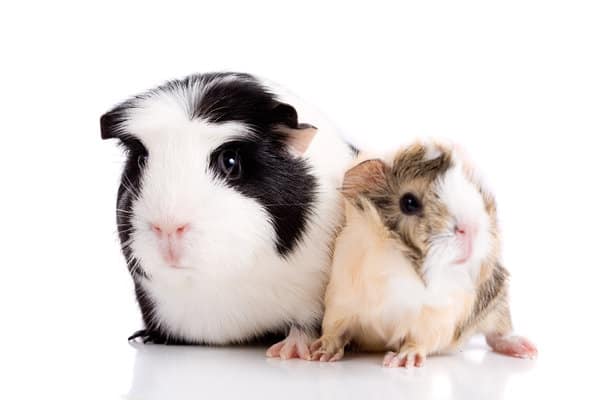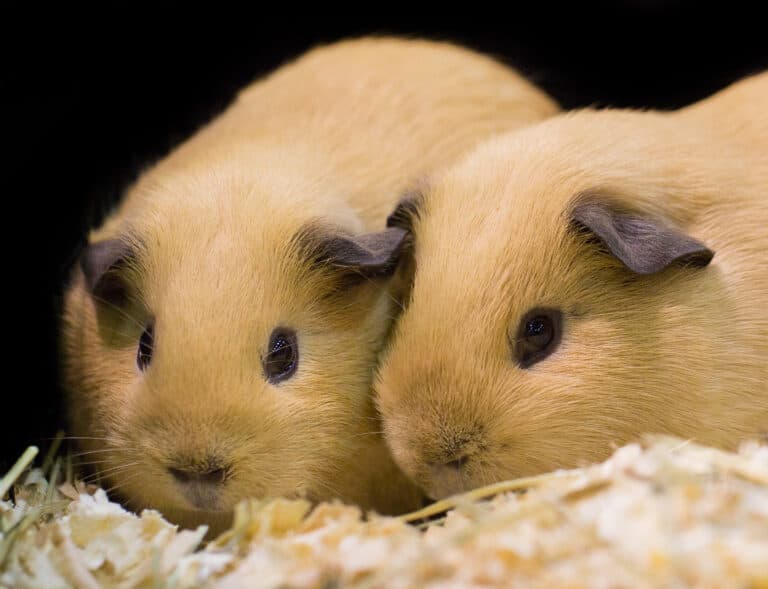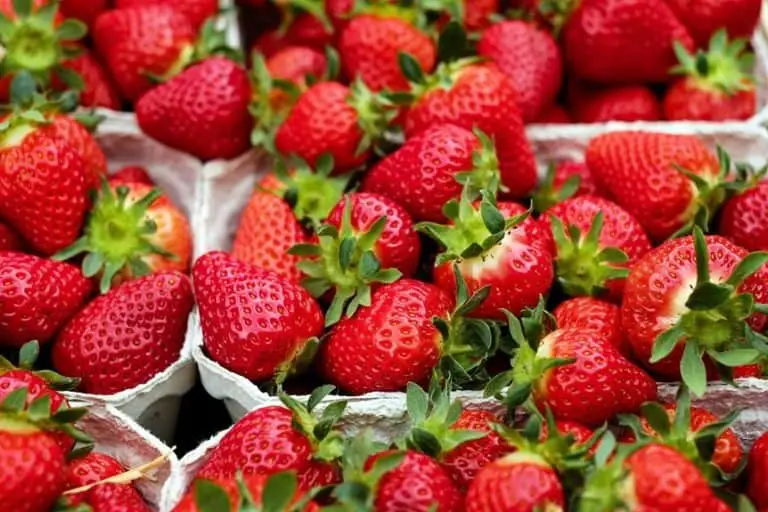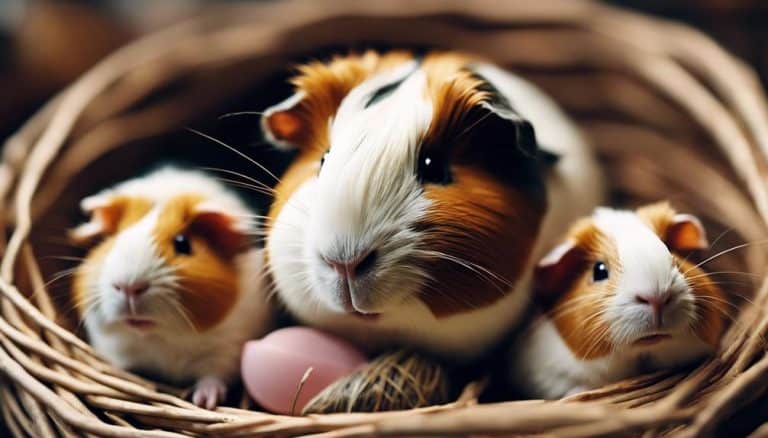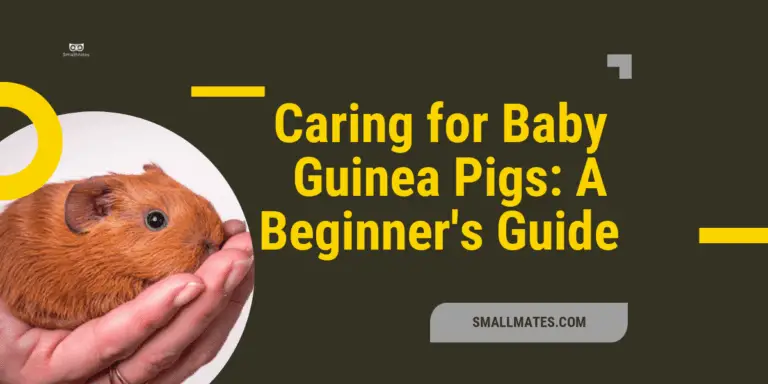Understanding Common Reasons Why Guinea Pigs May Lose a Tooth
Guinea pigs are cute and adorable creatures that make great companions. They are herbivorous animals that require a diet rich in fiber and vitamin C to stay healthy. However, they are also prone to dental problems which can lead to tooth loss.
What are the Common Dental Problems in Guinea Pigs?
Guinea pigs have open-rooted teeth which means their teeth can grow continuously throughout their life. This is because their teeth wear down quickly due to the abrasive nature of their diet. The typical dental issues that guinea pigs face include:
Broken Teeth
Broken teeth can occur due to several reasons such as falling or biting on hard objects. Treatment for broken teeth involves filing or trimming of the tooth or extraction if the damage is severe.
Overgrown Teeth
Overgrown teeth can occur when guinea pigs don’t eat enough hay or foods that require extensive chewing. This causes the teeth to grow too long, resulting in discomfort and difficulty eating. Overgrown teeth can be trimmed by a vet.
Dental Disease
Dental disease occurs when the teeth aren’t aligned correctly, and the opposing teeth don’t come into contact, resulting in overgrown teeth and gum disease. Symptoms of dental disease include drooling, difficulty eating, weight loss, and pain. Treatment for dental disease usually involves trimming of the teeth and antibiotics for any gum infection.
What are the signs of dental problems in guinea pigs?
The signs of dental problems in guinea pigs include weight loss, difficulty eating, drooling, and picking up food and then dropping it. If you notice any of these signs, you should take your guinea pig to the vet immediately.
How can you prevent dental issues in guinea pigs?
You can prevent dental issues in guinea pigs by providing them with a diet rich in hay and pellets. Hay is essential for a guinea pig’s dental health as it helps wear down their teeth and promotes proper jaw alignment. Pellets should be limited as they are high in calories and can lead to obesity, which can contribute to dental problems.
How to Take Care of Your Guinea Pig’s Teeth?
What are the steps involved in caring for your guinea pig’s teeth?
To keep your guinea pig’s teeth healthy, you should follow these steps:
- Provide them with a diet rich in hay, pellets, and fresh vegetables.
- Check their teeth regularly for any signs of overgrowth or damage.
- Trim their teeth if necessary and if you’re not comfortable doing it, take them to a vet.
Is it necessary to trim guinea pig’s teeth?
Yes, it is necessary to trim a guinea pig’s teeth if they become overgrown or damaged. Overgrown teeth can cause discomfort and difficulty eating, while broken teeth can lead to infection. If you’re not comfortable trimming your guinea pig’s teeth, take them to a vet.
What is the recommended diet for healthy guinea pig teeth?
A healthy guinea pig diet should consist of hay, pellets, and fresh vegetables. Hay should make up the majority of their diet, as it provides the necessary fiber to wear down their teeth and promote proper jaw alignment. Pellets should be limited to a quarter cup per day, and fresh vegetables should be given in moderation.
What to Do When Your Guinea Pig Loses a Tooth?
What causes guinea pigs to lose teeth?
Guinea pigs may lose their teeth due to several reasons such as old age, injury, or dental problems. The most common reason is overgrown teeth which cause the teeth to become loose and fall out.
Can guinea pig teeth grow back?
Guinea pig’s teeth may grow back if the tooth root is still intact. However, this is a rare occurrence, and it’s essential to take your guinea pig to the vet if they lose a tooth to prevent any further complications.
Should I take my guinea pig to a vet when they lose a tooth?
Yes, you should take your guinea pig to a vet if they lose a tooth. The vet will examine your guinea pig’s mouth and check for any underlying dental problems or infections. They may also recommend a change in diet or trimming of the opposing tooth to prevent further damage.
How to Identify Dental Disease in Guinea Pigs?
What are the symptoms of dental disease in guinea pigs?
The symptoms of dental disease in guinea pigs include drooling, difficulty eating, weight loss, and picking up food and then dropping it. You may also notice your guinea pig grinding their teeth or making clicking sounds.
What are the treatments for dental disease in guinea pigs?
Treatment for dental disease usually involves trimming of the teeth and antibiotics for any gum infection. In severe cases, teeth extraction may be necessary.
What can be done to prevent dental disease in guinea pigs?
You can prevent dental disease in guinea pigs by providing them with a healthy diet rich in hay, pellets, and fresh vegetables. Regular dental check-ups are essential to catch any dental problems before they become severe.
What Happens if Your Guinea Pig Loses Both Top Teeth?
How can a guinea pig eat without top incisors?
A guinea pig can still eat without their top incisors. They’ll use their tongue and lower incisors to grasp and pull food into their mouth. However, they may require a change in diet to softer foods that are easier to eat.
What can be done to help a guinea pig that lost both top teeth?
If your guinea pig loses both top teeth, it’s essential to take them to the vet immediately. The vet will examine their mouth and determine if there are any underlying dental problems that need to be addressed. They may also recommend a change in diet to softer foods and provide pain medication if necessary.
What happens if a guinea pig cannot eat after losing their teeth?
If your guinea pig isn’t eating after losing their teeth, it’s essential to take them to the vet immediately. The vet will examine their mouth and provide the necessary treatment to address any underlying dental problems or infections. They may also provide pain medication and recommend a change in diet to softer foods that are easier to eat.
Keeping your guinea pig’s teeth healthy is essential for their overall health and well-being. Regular dental check-ups and a healthy diet can help prevent any dental problems from occurring.

